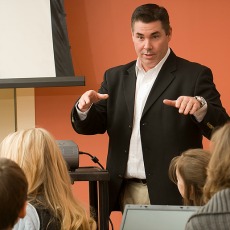The Benefits of Making the Shift to Student-Centered Teaching
Would you let your students decide when you hold office hours?
How about whether projects are worth more points than exams, or vice versa?
Would you let your students decide some of the topics that will be covered in the course?





